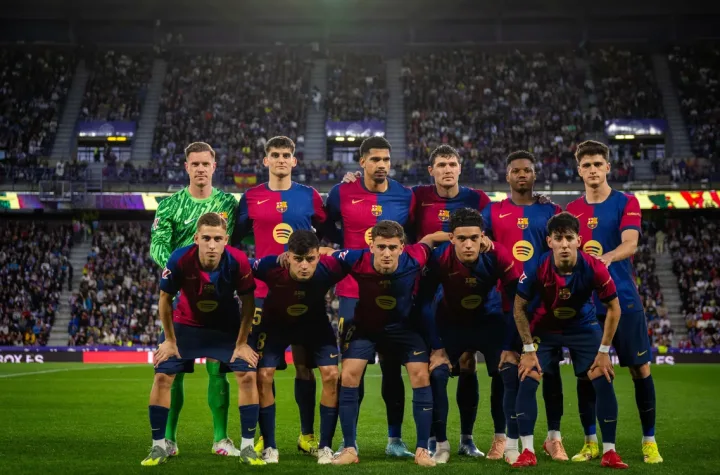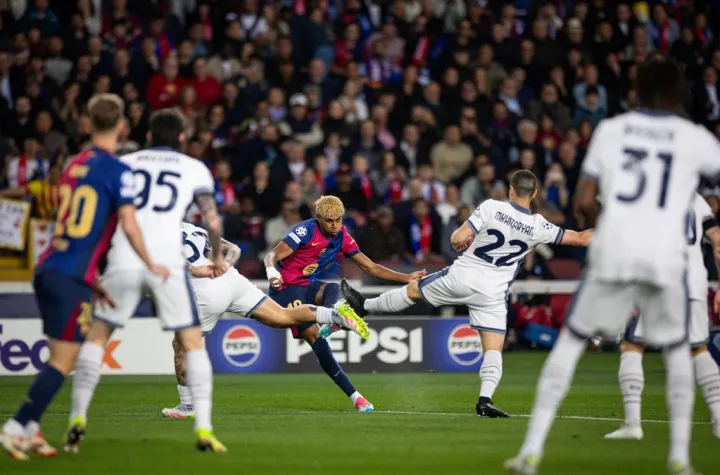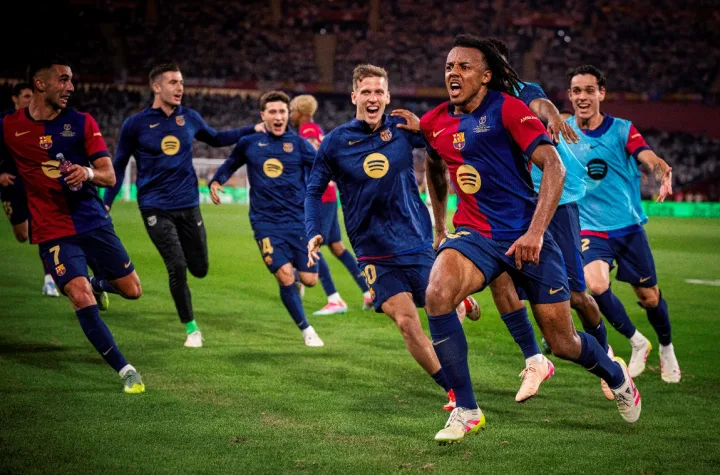
Joan Laporta / FC Barcelona

Barcelone need to earn a certain amount of revenue or they could face financial problems in the upcoming transfer windows.
La Liga has announced the updated salary cap for clubs after the winter transfer market. Barcelona’s current cap is 204M (down from 270M), and according to UEFA’s squad expenditure figures, the club exceeds it by 300 million, ranking second in Europe in terms of wage bill (505M) after PSG. According to Carles Molins of SPORT, the reason behind Barcelona still having these numbers is explained by the deferral of many contracts during the pandemic, as reported by Adrià Soldevila on ‘Cadena SER’. The precarious economic situation due to the pandemic, which hit FC Barcelona hard, forced the club to delay some payments to players, payments that continue to this day.
This includes players like Messi, Jordi Alba, Busquets, and also Frenkie de Jong, among others. Nikola Mirotic is also part of the picture. That’s why payments to former players are still included in the club’s wage bill, and despite the departure of these players and many others with high salaries, Barcelona still struggles with this issue.
Barcelona remains on thin ice regarding the La Liga salary cap issue. This mechanism, calculated by subtracting non-sporting expenses from budgeted income, dropped Barcelona from 656M to 270M in 2023 due to leverage effects. Barcelona ranks third in terms of cap, following Real Madrid (727M) and Atlético Madrid (303M).
In addition to the salary problems it has been facing for years, Barcelona is awaiting payment for the purchase of 49% of Barça Studios by the German fund Libero Football Finance. Receiving this payment, as well as meeting this year’s budget, would allow Barcelona to return to the 1/1 rule for signings. Currently, they are subject to the 1/2 rule, which requires them to free up double the amount they spend on wages and amortization of signings.
If they don’t receive this payment, apart from facing difficulties in signing new players, the club would have to sell players and seek new sponsorship or television rights revenue, as explained by economist and Barcelona’s numbers expert Ivan Cabeza on ‘Què t’hi Jugues?’ on ‘Cadena SER’.





More articles
Key stats ahead of Inter – Barça clash
A rotation squad gets Barcelona closer to the LaLiga title
Lamine Yamal shines in the Champions League semi-final